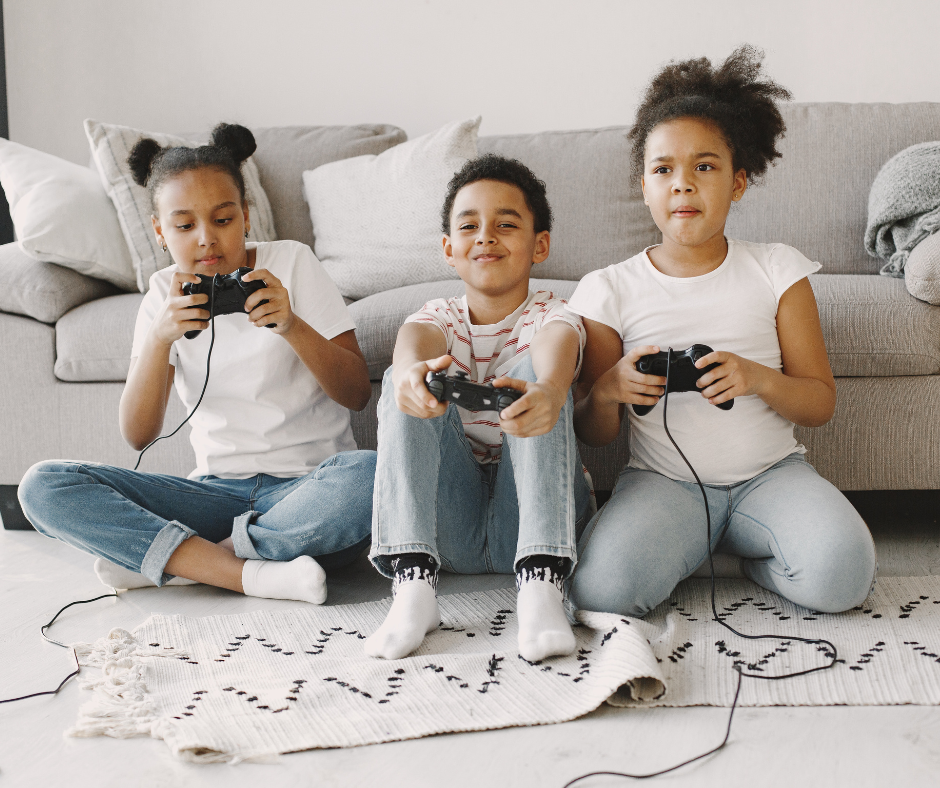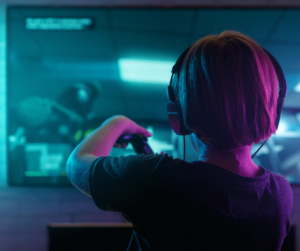Steve Emmons
International Master Trainer Gordon Training International
I’ve had the privilege of working in 30 countries and in a number of those, directly with parents as well as training parent educators to become Parent Effectiveness Training instructors. I’m often asked how the cultures differ and how parent and child issues and problems vary from country to country.
There are certainly differences but there are more things that are the same when it comes to the issues and conflicts between parents and their children.
What’s the most frequently raised issue? Too much time spent on Video Games, TV and mobile phones. From the US to China, Bulgaria, Romania, Mexico, Finland, the UK and many countries in between, Video Games are most often at the top of the list.
The overriding concern of parents is how to get their children and teens to stop spending so much time playing video games. Of particular concern are parents’ fears about the level of violence in many video games.
Common fears include: it will hurt my child’s studies, lead to attention problems, cause them to be distracted from their studies, their creativity will suffer, it will damage their eye sight and it will reduce their amount of healthy social interaction. How much of these fears are based on fact and are there positive benefits to playing video games?
Social scientists have actually been studying and discussing the effects of media violence on behavior since the 1950s and especially on video games since the 1980s. There is ongoing debate about the dangers of video games, with particular attention on violent video games. There is also a fast growing body of research which supports….both sides of the debate. However more and more studies are proclaiming that some of the most common concerns are in fact, not true and that video game playing can have significant positive effects.
Violent video games are easily blamed by the media and some experts as the reason why some youth become violent or commit extreme anti-social behavior. But many scientists and psychologists are discovering that video games can actually have many benefits.
“Video games change your brain,” according to University of Wisconsin psychologist C. Shawn Green. Playing video games change the brain’s physical structure the same way as do learning to read, playing the piano, or navigating using a map.
Some particularly interesting research comes from cognitive neuroscientist Daphne Bavelier, who studies the effect of action games at Switzerland’s University of Geneva and the University of Rochester in New York. Her research has shown that playing video games can in fact, improve eye sight, increase concentration, develop multi-tasking skills and have positive effects on learning and attention span.
“Action video games have a number of ingredients that are really powerful for brain plasticity, learning, attention and vision.” Daphne Bavelier. Watch her presentation on YouTube at: http://www.youtube.com/watch?v=FktsFcooIG8
Some of the areas where positive effects have been documented by Dr. Bavelier and others include:
• Following Instructions
• Problem Solving, Creativity, Logic and Strategic Thinking
• Faster and More Accurate Decision Making
• Planning, Resource Management and Logistics
• Situational Awareness
• Development of Reading and Math Skills
• Logical Thinking and Hypothesis Testing
• Reasoned Risk Taking
• Exploring and Rethinking Goals
• Responding to Challenges and Dealing Effectively With Frustration
• Improved Teamwork, Social Interaction and Cooperation When Played With Others
• Increasing Memory and Perseverance
Video games that require action such as “Dance Dance Revolution” and Nintendo Wii Boxing can actually provide a good physical workout as well.
Video game sales have more than doubled since 1996 but the increase of violent video games has not resulted in spikes in youth crime violence. Government statistics show that from 1994 to 2010 the number of violent youth offenders fell by more than half.
But what about the claims that violent video games are in fact harmful?
• From the online edition of the Journal of Experimental Social Psychology, Dr. Brad Bushman of Ohio State University states: “Playing video games could be compared to smoking cigarettes. A single cigarette won’t cause lung cancer, but smoking over weeks or months or years greatly increases the risk. In the same way, repeated exposure to violent video games may have a cumulative effect on aggression.”
• In the February 2012 issue of the Journal of Psychology and Popular Media Culture a published study stated that kids spending too much time playing video games may exhibit impulsive behavior and have attention problems.
Then there is the issue of extreme video gaming. In China there is a Boot Camp to help kids break actual addictions to video games.
While other studies seem to indicate that violent video games may be related to aggressive behaviors, evidence is not consistent to support this and contrasting studies indicate the opposite may be true. Listen to researchers themselves:
“I don’t know that a psychological study can ever answer that question definitively.” Michael R. Ward, University of Texas
“This is a pool of research that, so far, has not been very well done.” Christopher J. Ferguson, associate professor of psychology and criminal justice at Texas A&M International University
And, another paper also published in Psychology of Popular Media Culture indicated that video games can both hurt and help children’s attention issues — improving the ability to concentrate in short bursts but damaging long-term concentration.
The verdict is still out; more research needs to be done, however, in the meantime, with all the conflicting claims and proclamations what’s a parent to do?
1. Acknowledge that an excess of anything can certainly have negative effects
2. Be active and attentive; know what your child/teen is doing
3. Get involved in your child/teen’s world without crowding or being overbearing; playing a video game with your child/teen can be a good bonding activity
4. Communicate through the media your child uses; use texting to send positive messages
5. Listen to your child; by far the most important thing you can do; follow the adage; “Talk less and listen more!”
6. Share your ideas and concerns using “I-Messages” instead of blameful “You Messages”
7. Refrain from using power and threats
8. Problem solve with your child using the “No Lose” problem solving approach to deal with issues such as types of games, amount of time spent playing and what needs of your child are being met by playing video games
9. Identify your needs and those of your child instead of immediately getting stuck fighting over conflicting solutions
10. Provide options and a variety of activates for your child
11. Pay attention to the amount of time your child is playing video games
12. Observe your child’s behavior. Are you seeing any direct effects of video games on your child? Focus on specific, observable behaviors of your child instead of making judgments and using labels
In our busy and stressful lives it can be difficult to find the time and energy to be an active, involved parent. Just remember, everything we do is about choices. Where do you choose to spend your time and energy?
Choose to take time to be with your child, to listen, to communicate clearly and non-blamefully and be willing to solve problems together to find mutually acceptable solutions instead of imposing yours by force or blindly accepting those from your child which don’t meet your needs.
It’s clear that too much of anything can have negative effects on health, social life and studies. Too many hours watching TV or playing video games, too much ice cream, too much of a sedentary life style…. maybe even too much reading! That’s the problem I currently have with my three grandchildren, not too much video playing but lots and lots of time reading. A great problem to have, except even that can be an issue when it’s time for lights out at bedtime.
One of my favorite stories about dealing with video game playing comes from a colleague in the UK who had taken P.E.T. when her child was very young. When her son reached his teen years, he started to spend a lot of time playing video games. This mother’s friends all prodded her to be firm and to forcefully restrict her son’s playing time. Instead, she used her P.E.T. skills to listen, observe and find out what he was playing and what needs of his were getting met.
It also happened that he did not like math and history or for that matter, school very much, so that could have been another reason for her to restrict his video time and demand that he spend more time in his math and history books. She resisted the pressure to do that and instead used her P.E.T. skills.
By Active Listening, observing and sending I-Messages she discovered he spent most of his time playing a game called Age of Empires. This game, like others such as Civilization, involves building up empires based on historical cities. It requires creating and managing financial resources to hire workers and soldiers, build cities, and create the other structures and resources to win the game. In order to play successfully and to win he started, on his own, to study history and math.
When she told me this story, her son had just completed Graduate School with a degree in International Finance! If she had used power to restrict his game playing and not spent time listening and problem solving, his career and future would have taken a very different turn.
Create your own story of how listening to your child and problem solving together can transform a divisive issue into a positive experience that brings you both closer together.

